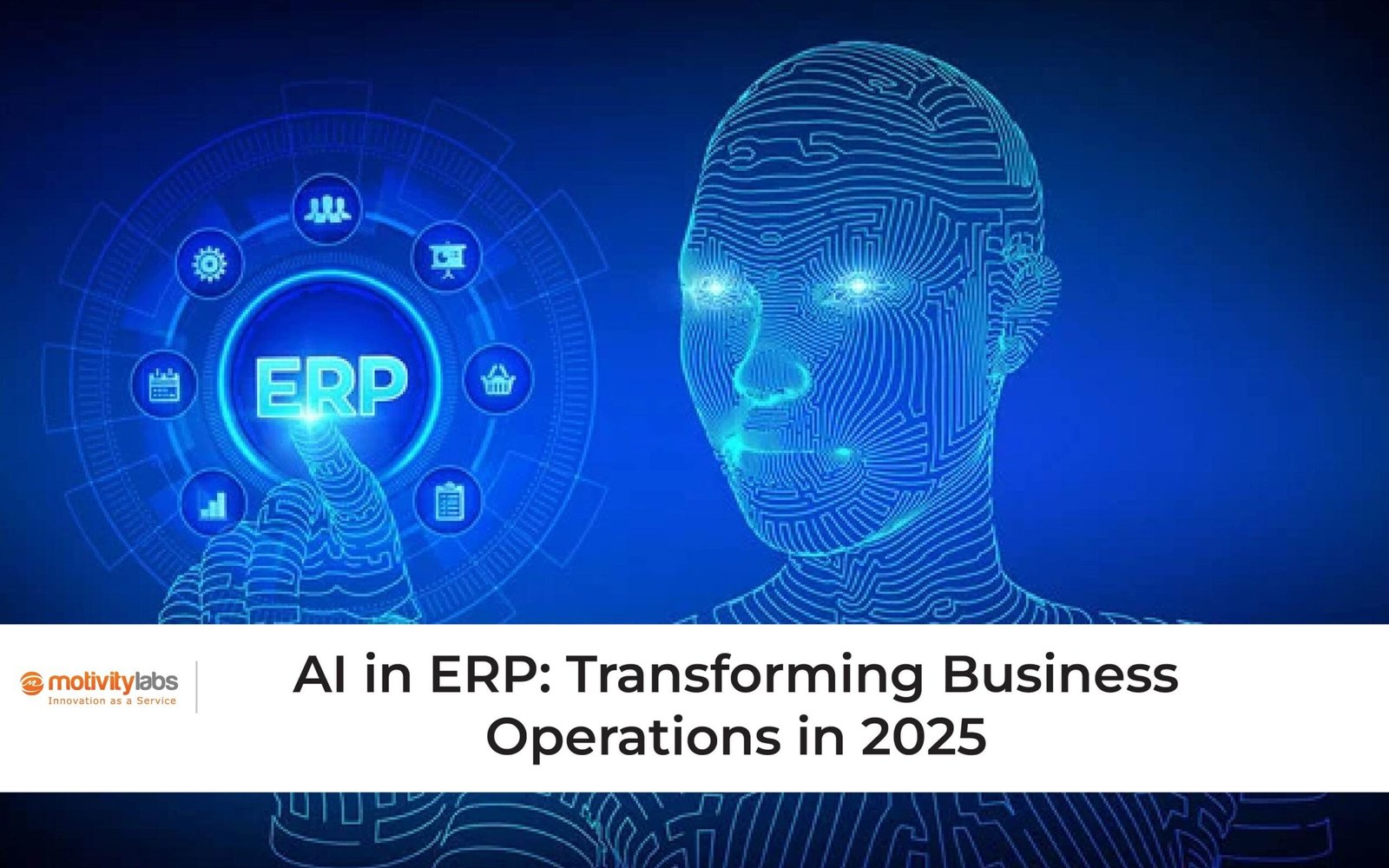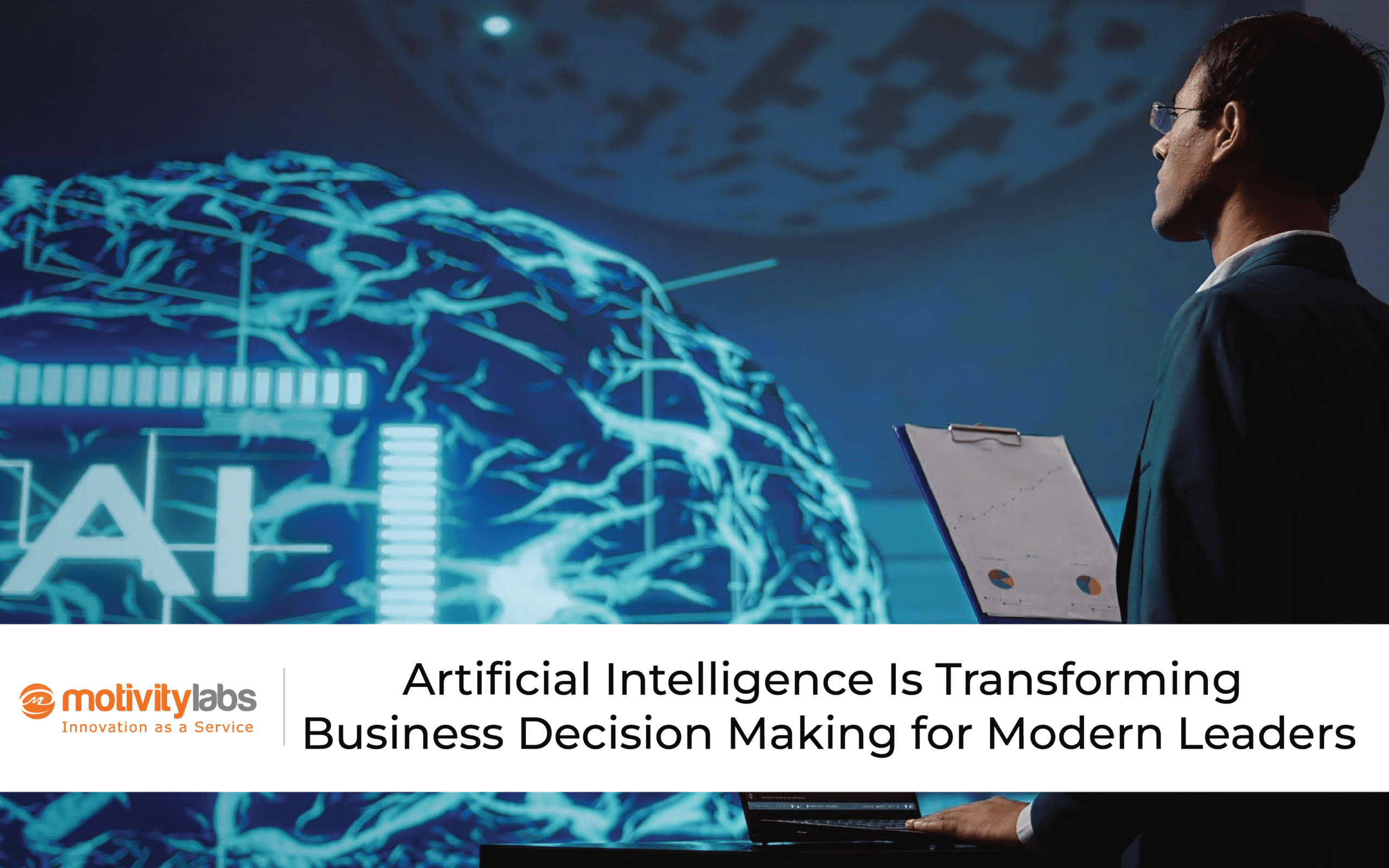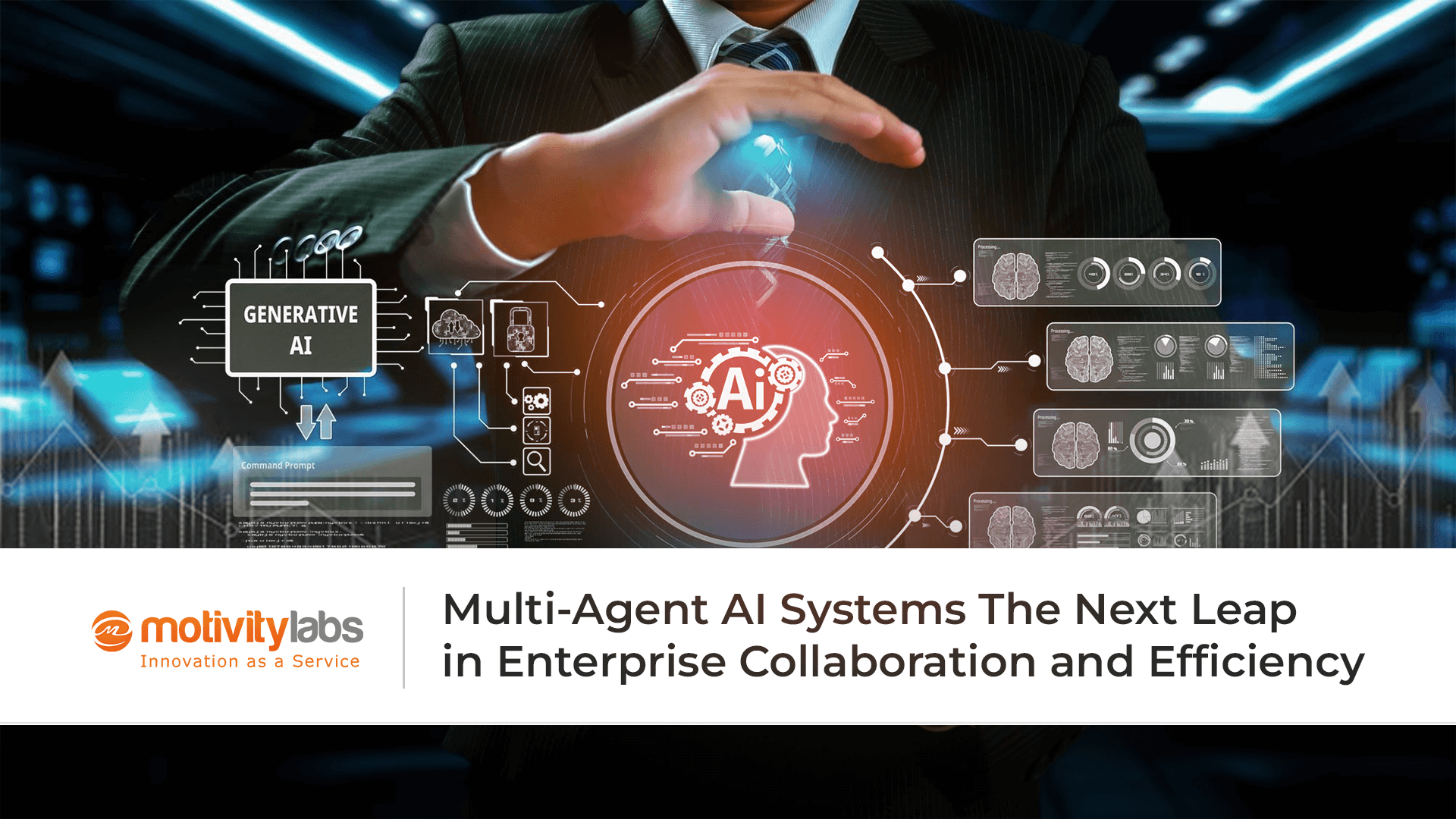Table of Contents
As business landscapes grow more complex and dynamic, companies increasingly rely on intelligent technologies to stay competitive. One of the most significant evolutions in enterprise software is the fusion of Artificial Intelligence (AI) with Enterprise Resource Planning (ERP) systems.
By 2025, AI is no longer regarded as an emerging feature. It has become a fundamental enabler, allowing businesses to enhance operational efficiency, adapt to evolving conditions, and pursue intelligent growth. ERP platforms, once designed purely for process automation and data centralization, are now evolving into systems of intelligence. According to Gartner, AI is reshaping ERP platforms by embedding intelligence directly into business workflows. With AI integration, ERP solutions can predict outcomes, automate complex decisions, and optimize workflows across various business functions.
Let us explore how AI is fundamentally transforming ERP systems and what that means for business operations in 2025.
The Shift from Process to Intelligence
Traditional ERP systems were designed to track business transactions and centralize organizational operations. They also played a key role in standardizing workflows across core functions such as finance, human resources, procurement, and supply chain management. While these systems brought visibility and consistency, they were often reactive, depending on human inputs and interpretations.
AI changes that equation.
By embedding AI into ERP platforms, businesses can move from reactive decision-making to proactive, even predictive, operations. The system transitions from a transactional platform to an intelligent decision-support engine that continuously learns, provides recommendations, and adapts to changing business needs. This shift is especially crucial in today’s data-driven world, where agility and foresight define success.
How AI Is Transforming ERP in 2025
As organizations increasingly seek agility and data-driven strategies, AI has emerged as a catalyst for the next generation of ERP systems. It is no longer just about automation. AI empowers ERP platforms to become more intelligent, responsive, and predictive.
Here are eight key areas where AI is driving innovation within ERP systems:
1. Predictive Analytics for Smarter Forecasting
AI leverages historical data, external signals, and real-time inputs to produce predictive insights. From forecasting demand and anticipating supply chain disruptions to projecting revenue and customer churn, AI transforms ERP into a forecasting powerhouse.
For instance, a retail company can use AI within its ERP system to forecast peak demand periods and proactively adjust procurement and inventory levels. This leads to reduced stockouts and more efficient warehousing.
2. Intelligent Process Automation
Repetitive and time-consuming tasks, such as invoice processing, payroll calculations, and purchase order validation, are increasingly handled through AI-powered automation. This shift allows organizations to improve efficiency while reducing the burden of manual administrative work.
Intelligent systems streamline operations by reducing manual effort and minimizing errors. These systems can follow predefined rules, learn from historical data, and perform tasks with minimal human intervention. By automating such workflows, businesses save time, reduce errors, and free up human resources for more strategic initiatives.
3. Real-Time Decision Support
AI in ERP enables real-time monitoring of business operations, offering actionable insights as events unfold. Whether a sudden dip in sales performance or a spike in supplier lead times, AI flags the issue instantly and suggests appropriate responses.
Executives and managers no longer need to wait for weekly reports. Instead, they can act on current data, increasing responsiveness and reducing risk.
4. Conversational Interfaces and NLP
Natural Language Processing (NLP) allows ERP users to interact with the system using everyday language. Users can type or speak queries such as “What were our top-selling products last quarter?” or “Show me pending vendor invoices.”
The system processes these requests and provides accurate responses within seconds. This makes ERP tools more accessible across departments, encouraging adoption and accelerating decision-making.
5. Personalized Dashboards and Experiences
AI customizes ERP interfaces based on user behavior, preferences, and job roles. Sales representatives might see real-time opportunity data, while HR personnel see attrition trends and onboarding metrics.
Personalization improves usability and enhances user engagement. It also ensures that each stakeholder receives insights that align with their specific responsibilities.
6. AI-Powered Supply Chain Optimization
ERP platforms equipped with AI can track disruptions, calculate risk scores, and suggest alternative vendors or shipping routes. They can also adjust procurement schedules dynamically based on demand shifts or supplier delays.
This level of real-time adaptability helps organizations reduce waste, maintain service levels, and respond quickly to unforeseen challenges. For example, manufacturers can avoid production halts by using AI insights to reorder critical components before shortages occur.
7. Enhanced Financial Intelligence
AI in ERP is revolutionizing financial management. From fraud detection and automated reconciliations to expense forecasting and budget planning, finance teams are benefiting from increased accuracy and efficiency.
AI tools can analyze transactions in real-time, flag anomalies, and significantly reduce the need for manual audits. This leads to faster month-end closings and improved financial governance.
8. Strategic Human Capital Management
ERP systems are also evolving in how they support human resources. AI can analyze employee engagement data, recommend career paths, identify skill gaps, and forecast attrition risk.
Recruitment modules enhanced with AI can screen candidates more efficiently by evaluating a wider range of criteria. These include qualifications, cultural compatibility, and predicted job performance.
Leading Industries Adopting AI in ERP
AI-powered ERP systems are valuable across all sectors, but some industries have embraced this transformation more rapidly and strategically. These early adopters have embraced AI to improve operational efficiency and establish a competitive advantage.
While AI-enhanced ERP systems benefit all sectors, some industries are leading the adoption curve:
- Manufacturing: Predictive maintenance, smart production planning, and real-time quality control
- Retail: Dynamic pricing, demand forecasting, and personalized promotions
- Healthcare: Patient record management, billing automation, and inventory optimization for critical supplies
- Finance and Banking: Risk modeling, compliance monitoring, and AI-assisted audits
These industries are redefining what ERP systems can achieve. By automating routine tasks, they are leveraging AI to foster intelligent growth, enhance adaptability, and deliver sustained long-term value.
Barriers to Adoption: Challenges to Address
While the benefits of AI integration in ERP systems are substantial, the path to implementation is not without its complexities. Many organizations encounter operational, technical, and cultural challenges that can slow progress or impact success. Recognizing and proactively addressing these hurdles is essential for a smooth and effective transformation.
- Legacy Systems: Many businesses still rely on outdated ERP platforms that lack the flexibility or infrastructure to support AI modules.
- Data Quality: AI models are only as good as the data they consume. Inconsistent or incomplete data can limit results.
- User Resistance: Employees may hesitate to adopt AI tools due to concerns about job displacement or unfamiliar interfaces.
- Change Management: Successfully implementing AI in ERP requires strong leadership, cross-functional alignment, and ongoing training.
- Cost and ROI Clarity: While long-term savings are clear, upfront investment in AI integration can be a barrier without a solid ROI case.
Organizations that recognize these challenges early can mitigate risks through proper planning and structured execution. By working with skilled partners and adopting a phased implementation approach, they often experience smoother transitions and faster, more sustainable results.
What to Look for in an AI-Enabled ERP System
With AI becoming a fundamental component of enterprise technology, selecting the right ERP system demands a strategic and future-oriented approach. It is no longer enough for a platform to handle basic operations; it must also support intelligence, scalability, and long-term adaptability. Choosing the right ERP platform in 2025 means evaluating more than just core features. Businesses should look for:
- AI and Machine Learning Capabilities: Built-in intelligence for forecasting, optimization, and automation.
- Cloud-Native Architecture: Scalable, secure, and accessible across geographies and devices.
- User-Centric Design: Personalized dashboards, voice-enabled search, and intuitive interfaces.
- Extensibility: Open APIs and modular tools to adapt and grow with evolving needs.
Security and Compliance: Enterprise-grade protection with AI-driven anomaly detection and governance tools.
Looking Ahead: Autonomous ERP Systems
As AI matures, ERP systems are moving toward autonomy. The future holds systems that self-optimize based on business goals, external market signals, and internal performance metrics.
Imagine ERP solutions that:
- Suggest new revenue opportunities
- Dynamically reassign resources during crises
- Learn continuously from operations and customer feedback
This is no longer a distant vision. It is a near-term reality for businesses that invest in the right technology today.
The Motivity Labs Advantage
AI in ERP is more than just a technological trend. It has become a strategic imperative for businesses aiming to stay competitive in fast-moving markets. The ability to forecast, personalize, and optimize operations provides organizations with a significant advantage.
Motivity Labs enables enterprises to unlock the full potential of AI-powered ERP systems. Whether modernizing a legacy platform or implementing a new ERP ecosystem, their solutions are designed to deliver intelligence, agility, and measurable business outcomes.
Today, ERP should no longer be viewed solely as an operational tool. With the right integration of AI, it becomes a powerful driver of innovation and sustainable growth.


